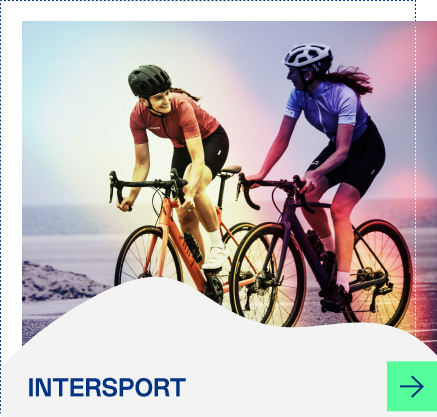Challenge
Visa is an American multinational payment card service that facilitates electronic funds transfers throughout the world.
Visa asked MindWorks to position them as a leader in sustainable transformation.
solution
Operating as a collaborative team with Visa, we’re shaping behavioural experiments that explore “what drives sustainable and regenerative behaviour” for business and consumers.
Our experiments are:
- Tailored to solving key barriers to sustainable consumption linked to circular business models
- Actionable and scaleable within each organisation to help expand more sustainable choices
- Open source, giving others access to the insights and resources created through the experiment


activity
To create effective behavioural design interventions for our merchant partners, we have defined a behavioural framework for 3 key areas:
- Target behaviours: Here, we begin by getting as specific as possible with the behaviour we’d like to see, and who we’d like to see it from.
For the behavioural insights lab, these target behaviours were pre-defined by Visa as resale, repair, rental, redistribute, return and refill. We worked with each merchant partner to target a single behaviour and then adding audiences, actions, context, and other details to create specific, vivid target behaviour and design goals. - Mindstates: Here, we identify the existing intrinsic motivators across our audience that could support our behaviour goals.
Within re-commerce, we defined 6 key mind states that can flex and change depending on the merchant partner, target behaviour and audience: Sentimentality, identity, convenience, status, community, confidence.
- Factors and forces: Here, as we begin designing interventions, relevant factors and forces serve as potential shaping strategies to employ across our experience. They can come from many places across the behavioural sciences:
- Cognitive Biases & Heuristics
- Behavioural Theory & Expert Strategies
- Clinical Research or Case Studies
- Proven Methods & Techniques
With our framework defined we then work within a clearly defined sprint process to take us from ideation to execution: Sprint kick off, Intervention Design, Experiment Definition, Merchant Integration Experiment Period, Analysis and Case study and Implementation.
case studies
case studies
Challenge
SOLUTION
Visa is an American multinational payment card service that facilitates electronic funds transfers throughout the world. Visa asked MindWorks to position them as a leader in sustainable transformation
Operating as a collaborative team with Visa, we’re shaping behavioural experiments that explore “what drives sustainable and regenerative behaviour” for business and consumers.
Our experiments are:
- Tailored to solving key barriers to sustainable consumption linked to circular business models.
- Actionable and scaleable within each organisation to help expand more sustainable choices.
- Open source, giving others access to the insights and resources created through the experiment.


ACTIVITY
To create effective behavioural design interventions for our merchant partners, we have defined a behavioural framework for 3 key areas:
- Target behaviours: Here, we begin by getting as specific as possible with the behaviour we’d like to see, and who we’d like to see it from.
For the behavioural insights lab, these target behaviours were pre-defined by Visa as resale, repair, rental, redistribute, return and refill. We worked with each merchant partner to target a single behaviour and then adding audiences, actions, context, and other details to create specific, vivid target behaviour and design goals. - Mindstates: Here, we identify the existing intrinsic motivators across our audience that could support our behaviour goals.
Within re-commerce, we defined 6 key mind states that can flex and change depending on the merchant partner, target behaviour and audience: Sentimentality, identity, convenience, status, community, confidence. - Factors and forces: Here, as we begin designing interventions, relevant factors and forces serve as potential shaping strategies to employ across our experience. They can come from many places across the behavioural sciences:
- Cognitive Biases & Heuristics
- Behavioural Theory & Expert Strategies
- Clinical Research & Case Studies
- Proven Methods & Techniques
With our framework defined we then work within a clearly defined sprint process to take us from ideation to execution: Sprint kick off, Intervention Design, Experiment Definition, Merchant Integration Experiment Period, Analysis and Case study and Implementation.
CASE STUDIES
CASE STUDIES
CASE STUDIES
CASE STUDIES
CASE STUDIES
CASE STUDIES




